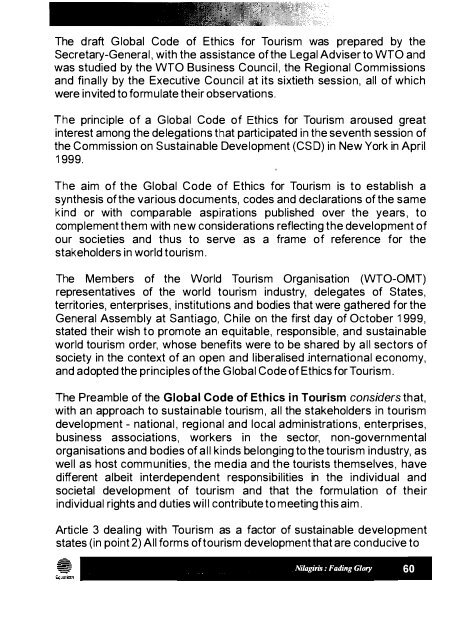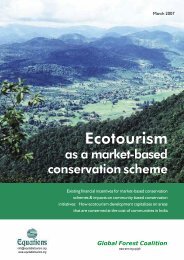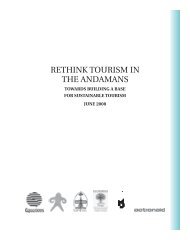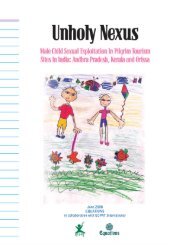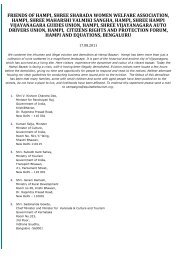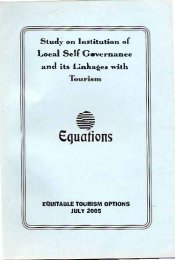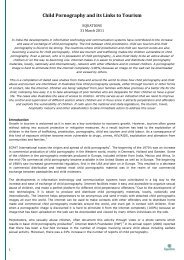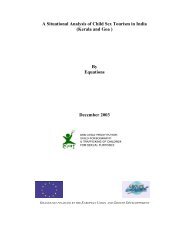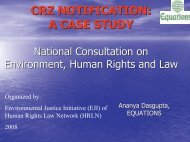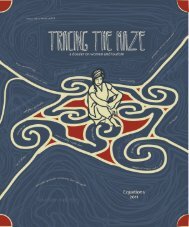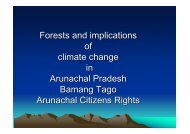Nilgiris Biosphere Reserve - Equitable Tourism Options
Nilgiris Biosphere Reserve - Equitable Tourism Options
Nilgiris Biosphere Reserve - Equitable Tourism Options
You also want an ePaper? Increase the reach of your titles
YUMPU automatically turns print PDFs into web optimized ePapers that Google loves.
The draft Global Code of Ethics for To urism was prepared by the<br />
Secretary-General, with the assistance of the Legal Adviser to WTO and<br />
was studied by the WTO Business Council, the Regional Commissions<br />
and finally by the Executive Council at its sixtieth session, all of which<br />
were invited to formulate their observations.<br />
The principle of a Global Code of Ethics for <strong>Tourism</strong> aroused great<br />
interest among the delegations that participated in the seventh session of<br />
the Commission on Sustainable Development (CSD) in New York in April<br />
1999.<br />
The aim of the Global Code of Ethics for <strong>Tourism</strong> is to establish a<br />
synthesis of the various documents, codes and declarations of the same<br />
kind or with comparable aspirations published over the years, to<br />
complement them with new considerations reflecting the development of<br />
our societies and thus to serve as a frame of reference for the<br />
stakeholders in world tourism.<br />
The Members of the World <strong>Tourism</strong> Organisation (WTO-OMT)<br />
representatives of the world tourism industry, delegates of States,<br />
territories, enterprises, institutions and bodies that were gathered for the<br />
General Assembly at Santiago, Chile on the first day of October 1999,<br />
stated their wish to promote an equitable, responsible, and sustainable<br />
world tourism order, whose benefits were to be shared by all sectors of<br />
society in the context of an open and liberalised jnternational economy,<br />
and adopted the principles of the Global Code of Ethics for <strong>Tourism</strong>.<br />
The Preamble of the Global Code of Ethics in <strong>Tourism</strong> considers that,<br />
with an approach to sustainable tourism, all the stakeholders in tourism<br />
development - national, regional and local administrations, enterprises,<br />
business associations, workers in the sector, non-governmental<br />
organisations and bodies of all kinds belonging to the tourism industry, as<br />
well as host communities, the media and the tourists themselves, have<br />
different albeit interdependent responsibilities in the individual and<br />
societal development of tourism and that the formulation of their<br />
individual rights and duties will contribute to meeting this aim.<br />
Article 3 dealing with To urism as a factor of sustainable development<br />
states (in point2) All forms of tourism development that are conducive to<br />
Nilagiris : Fading Glory 60


